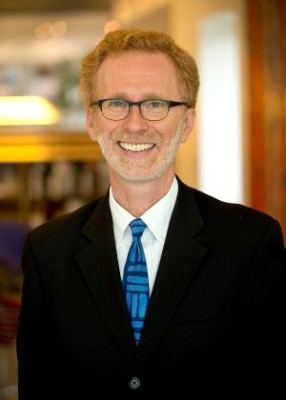DMC’s vision of making Rochester America’s City for Health incorporates the incredible work taking place inside the walls of Mayo Clinic and applying it to everyday life experiences for the people of Rochester, its visitors, patients, and companions. But the future of Rochester can’t be dependent on Mayo Clinic alone.
 Thomas Fisher is professor and director of the Metropolitan Design Center at the University of Minnesota and the most recent addition to the DMC Economic Development Agency (EDA) board of directors. Tom has spent more than 35 years as a teacher, writer, and urban designer. Tom will be the featured speaker at the Conley-Maass Special Reception on Thursday, February 18 and will share his thoughts on the importance of place as it relates to the entrepreneurial landscape of a community.
Thomas Fisher is professor and director of the Metropolitan Design Center at the University of Minnesota and the most recent addition to the DMC Economic Development Agency (EDA) board of directors. Tom has spent more than 35 years as a teacher, writer, and urban designer. Tom will be the featured speaker at the Conley-Maass Special Reception on Thursday, February 18 and will share his thoughts on the importance of place as it relates to the entrepreneurial landscape of a community.
DMC: We’ve gotten a great response from the community, and people are looking forward to hearing your thoughts about the future of Rochester and DMC, Tom. What do you see as Rochester’s strongest assets?
Fisher: Rochester is one of the more unique cities in the country. Having an internationally renowned medical center in a small community gives Rochester a tremendous advantage over larger competitors. Rochester has the opportunity to take the integrated model of care used by Mayo Clinic and apply it to the operation of the city itself. We can explore answers to the question “what does it mean to make an entire community healthy?”
DMC: Your experience in urban planning has certainly exposed you to many well-designed communities. Are there any cities you would point to that would be good examples for Rochester as move to implement the DMC vision?
Fisher: I don’t think there are any towns or cities on Rochester’s scale that have made health such a central part of their vision going forward. There is no other city with a Mayo Clinic sitting right in the middle of it, but we need to look beyond the United States to other parts of the world with better longevity and health. The work I’m doing now is looking at the changing economy that we’re in. We are moving away from being an economy of overconsumption – of calories, of fossil fuels, of finite resources – to a more entrepreneurial, innovative economy that is squeezing out inefficiencies. AirBnB puts to use empty bedrooms across the nation. Uber fills empty seats in cars. We are finally putting excess capacity to work for us.
DMC: Seems like DMC is being launched at the perfect time.
Fisher: It is. We know enough about the new economy and new technologies to recognize that we can’t build a 20th century version of DMC; we need the 21st century version. Rochester has the opportunity to not only be America’s City for Health, but America’s first “on-demand” city focused on sharing and collaboration. That would attract the kind of innovators the DMC plan is calling for, innovators from all over the world.
DMC: Are there specific strengths you see in the DMC plan that will draw innovators here?
Fisher: The DMC plan overall is great, but to me Discovery Square is really critical to the plan’s success. The future of Rochester can’t be hooked on Mayo Clinic alone. By creating an innovation-oriented, entrepreneurial environment that is inviting to startups and sets them up for success, Discovery Square will help to diversify the city’s economy and will also attract the younger population necessary for Rochester to be healthy, viable, and vital.
DMC: From your vantage point, how can we ensure that both the community remain engaged in the DMC vision as move forward?
Fisher: Rochester is doing all the right things. It is important that, as the DMC plan evolves, it is a participatory process and the community is involved in co-creating its own future. To be part of a true collaborative-sharing economy, we can no longer have master plans that are just imposed on communities. We need to find a process whereby the entire community’s voice is heard.
DMC: The community looks forward to hearing your ideas on Thursday, February 18 at the sold-out Conley-Maass Special Reception, Tom. Thank you for your contributions to the DMC vision.